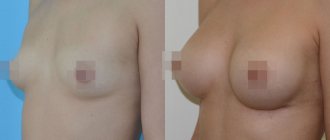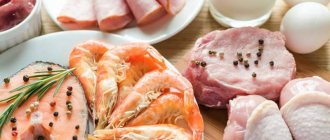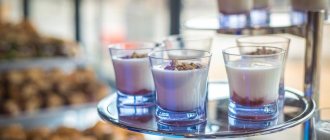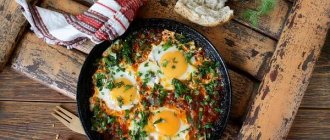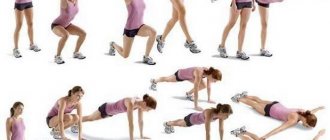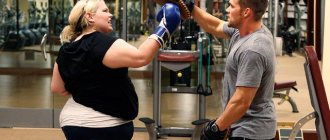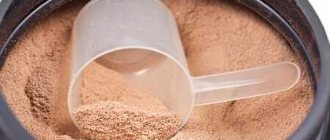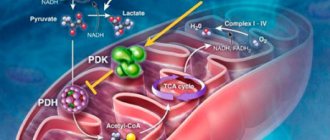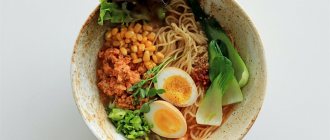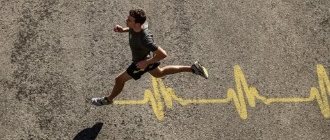Carbohydrates
Carbohydrates are one of the main sources of energy. The substances allow you to quickly obtain glucose - the sugar needed for sports, especially at high intensity, sudden movements and working with heavy weights. The storage form of glucose, glycogen, is found primarily in the muscles for quick use. After completing the exercise, energy reserves are depleted, and the body begins to absorb carbohydrates at twice the rate.
Along with glucose, muscles consume water and nutrients, which help replenish lost reserves. You can think of it as a sponge ready to absorb micronutrients.
Squirrels
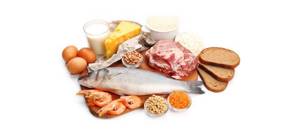
Protein intake is key to maintaining and building muscle mass. The substance may become even more important after exercise, especially strength training.
During training, muscle fibers are injured and protein in the body is destroyed. To correct the damage, you need to include a quality source of amino acids in your diet. In fact, adding protein is a way to build muscle. The process of protein synthesis is responsible for this. New tissues replace those that “failed” after microtrauma.
If you do not provide a sufficient amount of amino acids in the menu, then loss of muscle mass and loss of tone may occur, which will negatively affect physical fitness.
Post-workout recovery protein foods are thought to help repair damaged muscles. This leads to a potential increase in strength, endurance, and overall muscle mass.
What foods increase endurance during training?
And now information for those who cannot imagine their life without sports and regular training. Does it often happen to you that your strength leaves you in the middle of training, severe shortness of breath appears, endurance is quickly lost, strength exercises and intense cardio exercises are difficult?
If yes, then you should also review your diet and add the following foods to it:
Beet
This vegetable contains a lot of plant dietary fiber, potassium, vitamin C, B vitamins, including folic acid. Potassium allows you to regulate the performance of the muscular system and is responsible for normalizing the functions of the nervous system. Therefore, beets are useful not only for those who exercise a lot, but also for those who are engaged in mental activity for a long time.
Beetroot also contains substances that improve oxygen saturation in the body. This is important during high physical activity, since the lungs pass large volumes of air through themselves during exercise, the body actively consumes oxygen and needs to be filled.
Pumpkin
It contains a lot of vitamin A and B vitamins, as well as selenium and antioxidants. By the way, pumpkin seeds retain all the beneficial properties of pumpkin and can be used as a source of healthy vegetable fats throughout the year.
Zucchini
This vegetable is a source of magnesium, potassium, vitamins C and A, pectin, and soluble dietary fiber necessary to stabilize blood glucose levels.
Very often, loss of strength during exercise is caused by a sharp drop in blood sugar levels, which occurs due to the rapid expenditure of energy as fuel for working muscles. Therefore, a zucchini dish before training will avoid such an unpleasant situation. It will fill you up and protect you from hypoglycemia.
By the way, few people know that dried seeds of mature zucchini can also be eaten. Try it, you might like it.
Brussels sprouts
Not everyone likes the taste of this cabbage, because, whatever you say, it gives a bitter aftertaste, however, this does not reduce its beneficial properties. Brussels sprouts contain everything a person with an active lifestyle needs.
It contains vitamins C and B, antioxidants and, of course, plant-based dietary fiber that will help you stay full for a long time. Learn how to cook Brussels sprouts deliciously, and your attitude towards them will change.
Mushrooms
Mushrooms contain a lot of rare vitamin D, which is very difficult to obtain without sunlight. Mushrooms also contain vegetable protein, although the degree of its absorption by the body is quite low. Mushrooms perfectly saturate and supply us with antioxidants, so for athletes they will be a good addition to the main menu.
Sweet potato
This vegetable is often replaced with potatoes on the menu. The calorie content of sweet potatoes is much lower, and it also contains proteins and vitamin B6, which is involved in the absorption of protein. It must be remembered that the more protein a person eats (no matter plant or animal), the more vitamin B6 he needs for its optimal absorption.
Regular consumption of sweet potatoes and dishes made from them helps build strong muscles. Moreover, it goes well with other vegetables and meat dishes.
Fats
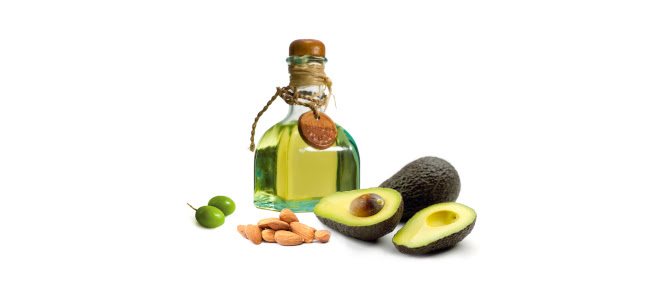
Although fat is burned during exercise and becomes a source of energy 40 minutes after the start, it does not need to be replenished after the gym. Mainly because the body has abundant reserves, and it is very unlikely that the “pantries” will be depleted after one session.
Rapid absorption of nutrients leads to better recovery, and fat slows down the absorption of certain substances, such as carbohydrates. Therefore, it is recommended to choose foods low in fat.
But some scientists question this advice, suggesting that consuming fat does not have a negative impact on recovery. In addition, the substances have anti-inflammatory properties, which may help reduce swelling after exercise.
There is no need to completely give up foods containing fat. Rational limits must be set.
Spinach
Adding greens to your regular diet is essential if you want to keep your body healthy and functional.
Spinach is often called a "superfood" because:
- • it is rich in nutrients;
- • It has very few calories.
Spinach is an excellent source of iron, which helps the body make the most of its energy. That's why by eating spinach, you help your body produce and save energy.
It is better that you eat it fresh in a salad rather than boiling it. When fresh, it will retain all the nutrients.
Meal time
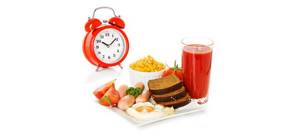
There is a lot of debate about whether there is a time limit for post-workout recovery nutrition to have the greatest effect. Many people may have heard the term “anabolic window”. What is this?
Muscles need fuel after the gym, and blood flow increases. When physical activity is completed, the body must replenish costs within 60 minutes. This hour is called the anabolic window.
In fact, there is no conclusive research showing exactly when to eat. Amateurs don’t care much about this, but professionals traditionally strive to eat within an hour after finishing a workout.
What if the theory is true? Then it is better to really choose an interval for eating at 20-60 minutes after completing classes.
Best Products
There is a wide range of nutritious foods that can meet your needs. Let's talk about the best options.
Simple and complex carbohydrates
Carbohydrates can be found almost everywhere. But not all of them are equally useful. The main sources of energy are found in sugary foods and everything that grows from the earth, including fruits, vegetables and grains.
All carbohydrates help fuel you, but some work faster than others. Simple ones, such as those found in white rice and sugar, are able to deliver glucose to the muscles at maximum speed. Complex ones provide more “time-stretched” energy.
Some of the best carbohydrate foods include:
- White rice.
- Potato.
- Pasta.
- Bread.
- Chocolate milk.
- Fruits.
- Oats.
Low Fat Proteins
The best foods for quick post-workout recovery are proteins. They contain all the essential AMK - amino acids. Proteins typically come from meat and fish, as well as some plants such as soy.
Dairy products may offer unique benefits due to their high levels of complete protein, simple carbohydrates, and hormones that have a positive effect on muscle gain.
There are proteins with the following types of release:
- Slow.
- Fast.
The former, such as casein, supply small amounts of amino acids for a longer period of time after consumption. The latter, for example, whey protein, are absorbed and begin to act instantly.
Scientists believe that taking both types of protein is most preferable. Fortunately, most foods contain both fast and slow proteins at the same time.
Here are some of the best complete protein options to consider:
- Chicken.
- Turkey.
- Shrimps.
- Fish.
- Beef.
- Cottage cheese.
- Greek yogurt.
- Eggs.
- Cheese.
Unsaturated fats
Healthy fats, especially omega-3s, act as powerful anti-inflammatory agents. They have a beneficial effect on the heart. Some studies show that it is for this reason that substances can improve performance.
Post-workout recovery foods that contain fat:
- Salmon.
- Avocado.
- Flax-seed.
- Chia seeds.
- Nuts and nut butter.
Foods with high nutritional value
Micronutrients, known as vitamins and minerals, can help support recovery. Foods high in antioxidants, such as vitamins E and C, are especially beneficial. Foods with potassium and magnesium are a good help for the body. And zinc is indispensable for accelerating muscle synthesis.
The easiest way to make sure your body is getting enough micronutrients is to include fruits and vegetables in your diet every day. Here are some great nutrient-rich food options:
- Greens with dark leaves.
- Carrot.
- Broccoli.
- Mussels.
- Berries.
- Bitter chocolate.
- Beans.
What foods should you avoid?
But it is recommended to either avoid the following foods that are harmful to the brain or reduce their presence in the daily diet - this will help avoid that very feeling of fatigue:
- Fast food. Its main drawback is that such dishes are not balanced. They contain a lot of animal fat and little protein (since they are cooked through thermal cooking). The body spends a lot of energy to digest such a dish.
- Alcohol. A huge amount of energy is also spent on “neutralizing” it. Plus, ethyl alcohol acts as a poison on neurons, which impairs brain function.
- Mayonnaise, ketchup and other “store-bought” sauces. In most cases, they are based on palm fat, which is practically not absorbed by the body. But when it enters the gastrointestinal tract, the production of both enzymes and gastric juice is stimulated - all this is extra energy expenditure.
- Trans fats. This can include margarine, spreads, and various types of sausages. Trans fats are extremely difficult to digest and are most often deposited in the subcutaneous fat layer. They produce minimal energy, but a lot of kilocalories are spent on absorption. Another nuance is that trans fats often lead to the development of atherosclerosis, which disrupts the absorption of micronutrients by body tissues.
Diet example
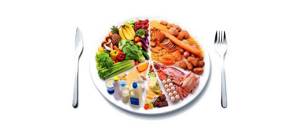
Here are some simple nutritional examples to speed up muscle recovery after an intense workout. They can be used to get the right combination of carbohydrates, proteins, healthy fats:
- Greek yogurt with fresh fruit and honey.
- Cottage cheese with banana.
- Scrambled eggs and toast.
- Mashed potatoes and chicken.
- Marinated shrimp with rice.
- Assorted cereals with salmon.
- Boiled chicken fillet with herbs.
Goals
Athletes have 3 main goals:
- Fat loss.
- Muscle building.
- Increased endurance.
Let's talk about how products for quick muscle recovery after a workout help you achieve a certain goal.
Fat Loss
BJU: 40/35/25.
The main goal is to reduce your carbohydrate intake. This may cause some difficulties. It is difficult to maintain a routine when you play sports. Therefore, a number of factors need to be taken into account:
- How many calories have already entered the body?
- Did you eat before training?
- How long did the physical activity last?
You need to roughly calculate your energy consumption so that you don’t overdo it with carbohydrates and fats.
Muscle building
BJU: 30/30/40.
Without consuming the right amount of proteins and carbohydrates, muscle growth is impossible. Therefore, the level of sufficient consumption should be taken into account:
- Proteins: 0.3-0.5 g per kg of weight.
- Carbohydrates: 1-1.5 g per kg of weight.
It turns out that for an athlete weighing 80 kg, 24-40 g of protein and 80-120 g of carbohydrates will be enough.
How does food affect performance?
Properly balanced nutrition allows you to extract maximum energy from food. At the same time, it is important to provide the body with a sufficient amount of vitamins, minerals, and other nutrients , despite the fact that energy is taken mainly from carbohydrates and fats.
Only with a normal balance of beneficial microelements will the digestive system be able to fully absorb the same proteins, glucose, and fat. Otherwise, it will lead to excess weight. Thus, the body postpones “for later” what it cannot absorb now.
Why do some foods negatively affect performance? Because too much energy is spent on digesting them . These are complex proteins, animal fats, and some complex carbohydrates. The body undoubtedly needs them, but not in the quantities in which modern man consumes them. The same fast food, for example, is very nutritious and satisfying, but at the same time it contains an excessive amount of complex animal fats, but there are no vitamins or fiber at all.
It is also necessary to take into account that performance depends not only on physical, but also psychological health. “Mental productivity” also directly depends on diet.
